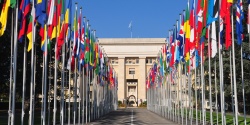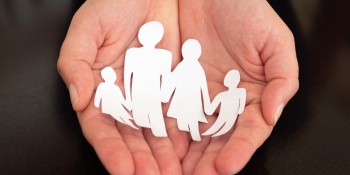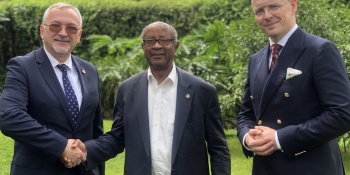Published: 12.11.2021

· The United Nations published a report on the implementation by its members of postulates of a policy based on the gender perspective in the legal and social sphere.
· The content of the report includes the definition of a gender identity as a subjective feeling of each person in isolation from their biological characteristics. In the author’s opinion, each person has the right to choose with which gender they want to identify. This right should also cover children and youths.
· The publication also underlined that the division of social roles based on two genders would result from a system oppressive towards women.
· The author of this document is Victor Madrigal-Borloz, an independent expert cooperating with the UN Human Rights Council.
The ‘Report on Gender: The Law of Inclusion & Practices of Exclusion’ was presented at the 47th session of the UN Human Rights Council and the 76th UN General Assembly. The beginning of the document contains references to feminist scientific works in which the term ‘gender’ is not based on the biological determinism of gender, but on its social context. It is to affect the character of interactions in a group and the identity of each person. In other words, gender is to be only a social construct, which is why, according to the author, we should not think about it binarily, but in a manner open to more possibilities not limited by the laws of nature.
“Importantly, the UN General Assembly has never accepted such a broad definition of gender. The Statute of the International Criminal Court of 1998, similarly to many other international documents, adopts the binary definition of gender,” underlines Anna Nowak from the Centre for International Law of Ordo Iuris.
In the content of the report, the author repeatedly emphasises that the strict division of social roles based on two genders – male and female, is a result from an alleged oppressive and patriarchal system, in which women have a lower position in relation to men and are treated as second-class citizens. Victor Madrigal-Borloz attributes such a state of affairs alleged by him in the so-called Third World (Poor South) countries to the effects of European colonialism, forgetting that the culture of those nations have been developing for centuries before the arrival of the first Europeans. In the next part of his work, the author indicates a possible source of the term ‘gender ideology’, i.e. religious leaders and opponents of the progressive understanding of human rights, who want to limit women’s rights, restricted by liberal groups to sexual and reproductive rights.
Victor Madrigal-Borloz also refers to another report presenting, in his opinion, large resources allocated by wealthy people and non-profit organisations to the so-called anti-gender movement. In 2008-2017 in the United States of America more than 6 billion USD was allocated for this purpose. However, it was not mentioned that in the same period more than 14 billion USD was allocated to the pro-gender policy. The report also referred to the institution of the Catholic Church, which is accused by the authors of a document promoting the understanding of the family concept in a way violating human rights, as well as the alleged rejection of equality between men and women.

29.05.2025
• Proceedings in the case of the German Mori family have concluded at the District Court in Gdańsk.

• The pressure on the European Union’s southern borders has continued unabated since the great migration crisis of 2015.

23.05.2025
• The Ordo Iuris Institute co-organized the 2nd Pan-African Conference on Family Values in Nairobi and was invited to take part in the Kenyan government’s celebration of International Day of Families.

19.05.2025
• The 78th World Health Assembly, the deliberative body of the World Health Organization, begins today in Geneva.